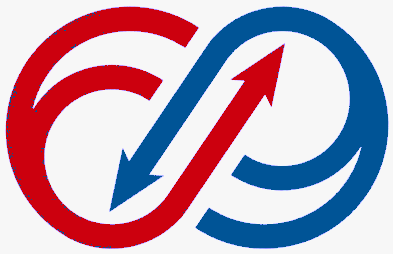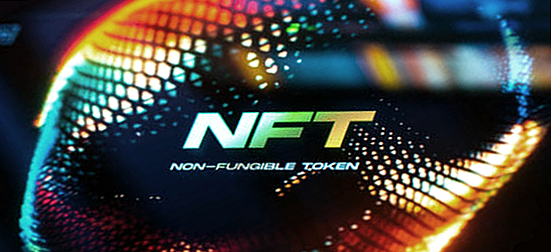Accredited InvestorsAltcoinAnatoli UnitskyAnti-Money Laundering (AML) In CryptoAPIArbitrageArtCoin TokenArticle DirectoryASICAuction Terminology GlossaryBasics of Stock Market InvestingBear MarketBest Crypto Payment Provider In the WorldBitcoinBlockchainBlockchain ConfirmationBlockchain Consensus MechanismBlockchain ForkBlockchain GlossaryBored Ape Yacht ClubBuild a Business That OutperformsBull MarketBuying SkyWay SharesByzantine Fault Tolerance (BFT) ExplainedCasascius CoinCentral Bank Digital Currency (CBDC)Centralized Crypto ExchangeCoinCoinsetCold WalletCollateralCommodity Futures Trading Commission (CFTC)Cross-Chain TechnologyCRUCrypto ExchangeCrypto GlossaryCrypto JokesCrypto Terms to KnowCrypto TickerCryptocurrencyCryptographyCryptojackingCryptounit BlockchainCryptounit GlossaryCryptounit ProgramdApp (Decentralized Application)Dead CoinDecentralized Exchange (DEX)Decentralized Finance (DeFi)Difference Between Bitcoin and EthereumDifferent Ways of Investing MoneyDigital CurrencyDistributed LedgerDo Your Own Research (DYOR)Dollar Cost Averaging (DCA)Dow Jones Industrial Average (DJIA)EncryptionERC-20ERC-721EthereumEvoScentFear Of Missing Out (FOMO)Fear, Uncertainty and Doubt (FUD)Fiat MoneyFNT Fintech CompanyGenesis BlockGlobal Unit PayGlossary of Banking TermsGlossary of Business TermsGlossary of Financial TermsHalvingHODLHot WalletHow Do I Start InvestingHow Rich is Satoshi Nakamoto?How to Create a BlockchainHow to Find Private InvestorsHow to Get Into FintechHow to Program Smart ContractsI Am Thrilled to Be a Part of This Global ProjectInitial Coin Offering (ICO)Initial Public Offering (IPO)Initial Token Offering (ITO)Innovation Basalt TechnologyInnovative Transportation TechnologiesInternational Bank Account Number (IBAN)Investing in Gold Mining StocksInvesting in Gold MiningJagerJoy of Missing Out (JOMO)Know Your Customer (KYC)LedgerLiquidity in CryptocurrencyMaker and Taker Fees in Crypto TradingMarket Capitalization (Market Cap)Meme CoinMetal Credit CardMetaMaskMillenials Now Have Access to Generational WealthMy Best Investment EverNew Digital EvolutionNFT GlossaryOff-Chain TransactionsOn-Chain TransactionsOpen Edition NFTPeer-to-Peer (P2P)Personal Loan GlossaryProbably the Best STO on the MarketProof of Stake (PoS)Real Estate Glossary of TermsReal Estate Investing GlossaryRebase TokenSecurities and Exchange Commission (SEC)Security Token ExchangesSecurity Token Offering (STO)Soulbound Decentralized Identities for Security TokensSoulbound ID Launch by Stobox Proves a SuccessSoulbound TokensStoboxStock Market GlossaryTestimonialsTether Platform and Token (USDT)UnitEx ExchangeUnitsky String TechnologiesUNTBUSDUValidatorWe Started Investing When We Were 25What are Blue Chip NFT?What are Blue Chip Stocks?What are Crypto Assets?What are Crypto Smart Contracts?What are CryptoPunks NFT?What are Digital Assets?What are Digital Collectibles?What are Gas Fees?What are Gas Wars?What are Hashmasks?What are Non Fungible Tokens?What are Non-Sufficient Funds (NSF)?What are Soulbound Tokens (SBT)?What are Stablecoins in Crypto?What are Transactions Per Second (TPS)?What are Utility NFTs?What are Utility Tokens?What Does Burning Crypto Mean?What Does Diamond Hands Mean?What Does Paper Hands Mean?What Does To The Moon Mean?What Does WAGMI Mean?What Happened to Satoshi Nakamoto?What is a 51% Attack?What is a Baby Boomer?What is a Backlink?What is a Banner?What is a Barcode?What is a Bid-Ask Spread in Crypto?What is a Block in Blockchain?What is a Block Reward?What is a Blockchain Address?What is a Blockchain Node?What is a Blockchain Oracle?What is a Blog?What is a Bond?What is a Bot?What is a Broker?What is a Business Accelerator?What is a Cash Cow?What is a Commercial Bank?What is a Commodity?What is a Con?What is a Credit?What is a Credit Limit?What is a Credit Rating?What is a Crypto Airdrop?What is a Crypto Bridge?What is a Crypto Scam?What is a Crypto Token?What is a Crypto Wallet?What is a Crypto Whale?What is a Crypto Winter?What is a Cryptocurrency Public Ledger?What is a Cryptocurrency Roadmap?What is a DAO?What is a Dark Pool?What is a Day Trader?What is a Dead Cat Bounce?What is a Default?What is a Derivative?What is a Digital Credit Card?What is a Fiscal Quarter?What is a Fungible Token?What is a Governance Token?What is a Grace Period?What is a Hard Fork?What is a Hot Wallet?What is a Hybrid Blockchain?What is a Hybrid PoW/PoS?What is a Joint Account?What is a Market Cap?What is a Merkle Tree in Blockchain?What is a Mining Farm?What is a Nonce? What is a PFP NFT?What is a POS System?What is a Prepaid Card?What is a Private Blockchain?What is a Private Key?What is a Public Blockchain?What is a Public Key?What is a Reserve Currency?What is a Ring Signature?What is a Routing Number?What is a Rug Pull in Crypto?What is a Safe Deposit Box?What is a Satoshi?What is a Security Token?What is a Seed Phrase?What is a Shitcoin?What is a Sidechain?What is a Soft Fork?What is a Spot Market?What is a State Bank?What is a SWIFT Code?What is a Tax Identification Number (TIN)?What is a Time Deposit?What is a Transaction Account?What is a Variable Interest Rate?What is a Virtual Assistant (VA)?What is a Virtual Card?What is a Virtual Currency?What is a Visa Card?What is a Whitelist in Crypto?What is a Whitepaper?What is Accounts Payable (AP)?What is AMA in Crypto?What is Amortization?What is an Accrual?What is an ACH Transfer?What is an Actuary?What is an Addendum?What is an Algorithm?What is an Angel Investor?What is an Annuity?What is an Asset?What is an ATM?What is an Atomic Swap?What is an Audit?What is an Avatar?What is an EIN?What is an Embargo?What is an Entrepreneur?What is an IDO (Initial Dex Offering)?What is an Interest Rate?What is an Internet cookie?What is an Investment Bank?What is an NFT Drop?What is an NFT Floor Price?What is an Ommer Block?What is an Orphan Block?What is an Outstanding Check?What is an Overdraft?What is Artificial Intelligence (AI)?What is B2B (Business-to-Business)?What is B2G (Business-to-Government)?What is Bartering?What is Bitcoin Dominance?What is Bitcoin Pizza Day?What is Blockchain Immutability?What is Blockchain Used For?What is BRICS?What is Business-to-Consumer (B2C)?What is C2C (Customer to Customer)?What is Capitalism?What is Catfishing?What is CFD Trading?What is Check Kiting?What is Cloud Mining?What is Communism?What is Content Marketing?What is Decentralization in Blockchain?What is DeFi in Crypto?What is Delisting?What is Depreciation?What is Digital Marketing?What is Diversification?What is Double Spending?What is Dumb Money?What is Dumping?What is Earnings Per Share (EPS)?What is Economics?What is Email Marketing?What is Equity?What is Etherscan?What is Fintech?What is Foreign currency?What is Forex?What is Fundamental Analysis (FA)?What is GameFi?What is Generative Art NFT?What is Gwei?What is Hard Currency?What is Hash Rate?What is Hashing in Blockchain?What is Inflation?What is Initial Game Offering (IGO)?What is Interest?What is Interest Income?What is Mainnet?What is Mastercard?What is Metaverse in Crypto?What is Mining in Cryptocurrency?What is Minting NFT?What is Mobile Banking?What is Money Laundering?What is NFT Alpha?What is NFT Metadata?What is NFT Rarity?What is NGMI Meaning?What is Nominal Interest Rate?What is Online Banking?What is Open-End Credit?What is OpenSea NFT Marketplace?What is Personal Identification Number (PIN)?What is Play-to-Earn?What is Polygon?What is Proof of Authority (PoA)?What is Proof of Work (PoW)?What is Public Key Cryptography?What is Pump and Dump?What is Quantum Computing?What is Refinancing?What is Retail Banking?What is Ripple?What is Sharding?What is Slippage in Crypto?What is Smart Money?What is Solvency?What is Soulbound ID?What is SSL?What is Staking in Cryptocurrency?What is Technical Analysis (TA)?What is Testnet?What is the Ask Price?What is the Better Business Bureau (BBB)?What is the Bid Price?What is the Dark Web?What is the InterPlanetary File System (IPFS)?What is the Gold Standard?What is the Lightning Network?What is the Prime Rate?What is the Sandbox?What is the Secondary Market?What is the World Bank?What is Tier 1 Capital?What is Tokenomics?What is TRC-20?What is Universal Banking?What is Unspent Transaction Output (UTXO)?What is Usury?What is Volatility in Crypto?What is Wash Trading?What is Web3?What is Whisper?What is XRP?What is Zero-Knowledge Proof (ZKP)?Who is Beeple?Who is Satoshi Nakamoto?Who is Vitalik Buterin?Why Tokenization is a Safe HavenWhy You Should Try Your Hand at Trading
What is a Fungible Token?
- Home
- Crypto Glossary
- What is a Fungible Token?
"Fungibility", which refers to the exchange of an item for an identical counterpart, was a concept that garnered little attention outside of the finance industry for centuries.

In the world of blockchain and cryptocurrency, the concept of "fungibility" is a crucial one. It refers to the interchangeability of one asset or unit for another identical asset or unit. This concept is particularly relevant in the context of tokens, both fungible and non-fungible, which are a crucial aspect of the blockchain ecosystem.
A Brief History of Fungibility
The concept of fungibility has been around for centuries and has played a significant role in various areas of human activity, from economics and finance to law and philosophy. The word "fungible" comes from the Latin word "fungibilis," which means "able to be used, consumed, or disposed of."
The earliest examples of fungible goods can be traced back to the barter system, where people exchanged goods and services directly. However, as economies grew more complex, people started using currencies as a means of exchanging value. The concept of fungibility became particularly important in the context of currencies, where it refers to the ability of one unit of currency to be exchanged for another unit of the same value.
In medieval Europe, coins were minted with different weights and levels of purity, making them non-fungible. This led to confusion and disputes, as people would try to pass off lower-value coins as higher-value ones. To address this issue, governments started minting standardized coins that were interchangeable, paving the way for the widespread use of fungible currencies.
The concept of fungibility has also played a critical role in the development of financial markets. For instance, stocks and bonds are fungible since they represent ownership in a company or debt obligations, respectively, and can be exchanged for other stocks or bonds of the same type and value.
Commodities such as gold, silver, and oil are also fungible, as they can be traded in standardized units with uniform quality and value.
In the digital age, fungibility has taken on new significance in the context of cryptocurrencies and blockchain technology. The advent of cryptocurrencies such as Bitcoin and Ether (Ethereum) has brought the concept of fungibility to the forefront, with people looking for ways to exchange digital assets in a decentralized and transparent manner.
What is a Fungible Token?
A fungible token is a digital asset that is identical to another digital asset of the same type and value. For instance, a dollar bill is fungible since it can be exchanged for any other dollar bill with the same value. Similarly, a fungible token on a blockchain network can be traded for another token of the same type and value without any difference in value or quality.
Fungible tokens are commonly used in financial applications such as cryptocurrencies, stablecoins, and security tokens which represent assets such as gold, silver, or other commodities. These tokens are designed to be interchangeable, which means that they can be traded or exchanged for other tokens of the same type and value without any loss or gain.
Fungible tokens are also designed to be divisible. This means that they can be broken down into smaller units to allow for more flexibility in transactions. For example, Bitcoin, a popular fungible cryptocurrency, can be divided into units as small as one hundred millionth of a Bitcoin, known as a satoshi.
One of the significant advantages of fungible tokens is their liquidity. Since they are interchangeable, they can be easily traded on cryptocurrency exchanges, making them highly liquid assets. Fungible tokens are also relatively simple to program, making them ideal for developing blockchain-based applications and smart contracts.
Examples of Fungible Tokens
Here are some examples of fungible tokens:
- Bitcoin (BTC): Bitcoin is the first and most well-known cryptocurrency. Each Bitcoin is interchangeable with any other Bitcoin and has the same value, making it a fungible token.
- Ethereum (ETH): Ethereum is a decentralized platform for building decentralized applications and smart contracts. Ether is the native cryptocurrency of the Ethereum network and is a fungible token.
- Tether (USDT): USDT is a stablecoin that is pegged to the value of the US dollar.
- Binance Coin (BNB): Binance Coin is the native cryptocurrency of the Binance exchange.
- Litecoin (LTC): Litecoin is a cryptocurrency that is similar to Bitcoin.
- Ripple (XRP): XRP is a cryptocurrency that is designed for cross-border payments.
- Cryptounit (CRU): Cryptounit is issued on the Cryptounit blockchain, which is developed based on the EOS code and uses the Delegated Proof-of-Stake (DPoS) consensus algorithm. Each CRU is interchangeable with any other CRU and has the same value, making it a fungible token.
Fungible tokens are an essential component of many blockchain-based applications and platforms. They are used for a variety of purposes, including value transfer, payment, and governance.
In addition to the examples above, there are many other fungible tokens available, each with their own unique features and use cases. As the blockchain ecosystem continues to evolve, we are likely to see the emergence of new fungible tokens and innovative applications of this technology.
Where Can You Buy Fungible Tokens?
If you're interested in buying fungible tokens, there are several options available to you. The most common way to acquire fungible tokens is through cryptocurrency exchanges, which allow you to buy, sell, and trade various fungible tokens.
There are hundreds of cryptocurrency exchanges out there, ranging from well-known and established platforms to newer and smaller exchanges.
In addition to cryptocurrency exchanges, you can also buy fungible tokens through decentralized exchanges (DEXs), which allow you to trade cryptocurrencies without the need for a central authority.
Another option for buying fungible tokens is through peer-to-peer marketplaces. These platforms allow you to buy and sell cryptocurrencies directly with other users, with the platform serving as an intermediary to ensure a safe and secure transaction.
Related Articles

What is a Crypto Token?
A crypto token is a specific token of virtual currency. These tokens represent tradable assets that runs on an existing blockchain. These currencies are often issued, sold, and put into circulation through...

What are Non Fungible Tokens (NFTs)?
All fiat currencies, for example, are fungible. Each individual unit must be interchangeable with any other equivalent individual unit in order to...

Liquidity in Cryptocurrency
A high degree of liquidity means that there is a large number of buyers and sellers in the market, and transactions can be executed quickly and...
- Home
- Crypto Glossary
- What is a Fungible Token?